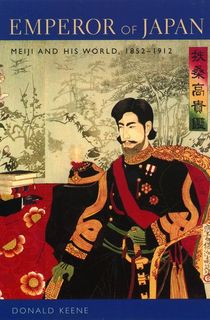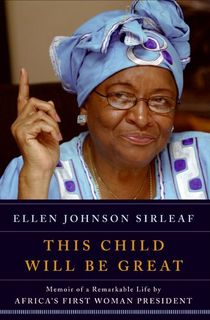We've rounded up biographies that present fascinating stories about leaders from around the world. The leaders mentioned here are responsible for political reform, ushering in eras of peace or instability, and much more in their respective countries. Some are inspiring, while others leave behind a cruel legacy, but all occupy an interesting and unforgettable place in history.

Emperor of Japan
Emperor Meiji, also called Meiji the Great and Meiji the Holy, served as Emperor of Japan from 1867 until his death in 1912. He moved Japan away from an absolute monarchy and instead established a constitutional monarchy. Great political reform was made during his reign, leading to the time period being dubbed “The Meiji Restoration.” Historians today see this revolutionary era as similar to the American and French Revolutions in terms of influence.

King: William Lyon Mackenzie King: A Life Guided by the Hand of Destiny
Serving three non-consecutive terms between 1921 and 1948, William Lyon Mackenzie King was the longest-serving Canadian Prime Minister, with a total of 21 years in office. He served during both the Great Depression and World War II and is widely remembered for his leadership during those dark times. He is also the only Canadian Prime Minister to have earned a PhD.

Korea's Syngman Rhee
Syngman Rhee served as the first president of South Korea from 1948 to 1960. Before coming into power, Rhee served as a representative to Western powers from 1918 to 1924 while he resided in the United States. An authoritarian ruler, he was forced to resign after his third presidential term was protested. Upon his resignation, the Second Republic of Korea was established. He spent the rest of his life exiled in Honolulu.

Jinnah: A Life
Muhammad Ali Jinnah was the founder and first leader of Pakistan after its partition from India. Although the Partition of India leaves behind a painful legacy, Jinnah himself is highly regarded among Pakistanis. His birthday is still observed as a national holiday. Jinnah’s motivation for establishing Pakistan as its own nation was to ensure that Muslims had a place where they would not be marginalized, as he feared they would be in the Hindu-majority India after the nation gained its independence. The decision was made after Jinnah spent years working as the leader of the All-India Muslim League, a political party dedicated to representing Muslims in India.

This Child Will Be Great
The president of Liberia from 2006 to 2018, Ellen Johnson Sirleaf was the first woman to be elected head of state in African history. After graduating from Harvard, Sirleaf returned to Liberia to serve as the Deputy Minister of Finance in the 1970s. By 1980 she was appointed as the Minister of Finance. She first ran for presidency in 1997 but didn't win. After winning the presidential election in 2005 and again in 2011, she earned a Nobel Peace Prize for her efforts to further women’s rights. At the end of her second presidential term, Sirleaf was elected as the Chair of the Economic Community of West African States, becoming the first woman to hold that position as well. This is her "exceptionally well written" memoir (The Washington Post).

Emperor Haile Selassie
Though his reign has been widely criticized for authoritarianism, Emperor Haile Selassie is remembered for abolishing slavery in Ethiopia. He sought to modernize Ethiopia and was in power when the country joined the United Nations. Criticisms from human rights groups led to statues of Selassie and his father being removed from display in both Ethiopia and the UK in recent years. This book explores his complicated legacy.

Erik the Red
Erik the Red was an Icelandic Viking who founded the first settlement in what is now Greenland. Erik first explored the land after sailing to its shores while in exile from Iceland. Upon the end of his exile, he returned to Iceland with stories of this newfound land and the opportunities it could provide. The following summer, Erik returned to Greenland with over 20 ships of colonists, though only 14 survived the journey. While Erik remained loyal to his Old Norse Gods, his wife founded the first Christian church of Greenland, of which his son, the explorer Leaf Erikson, later became a prominent member.

Éamon de Valera: A Will to Power
Éamon de Valera fought for Irish independence before rising to political power. Once in office, he introduced the Constitution of Ireland, which still holds power today. Due to his participation in the 1916 Easter Rising, Éamon de Valera was jailed in England and sentenced to death before being returned home after public outcry. Prior to his presidency, he was the longest-serving Taoiseach, Irish head of government, in the nation's history. Once World War II became imminent, it was de Valera who suggested that the Republic of Ireland remain neutral, which was widely supported by the citizens of Ireland.






